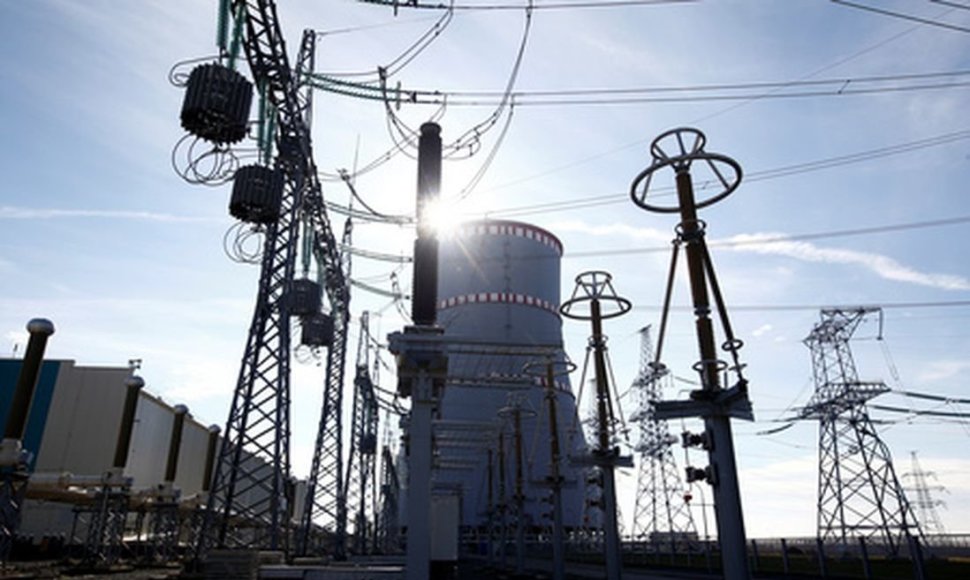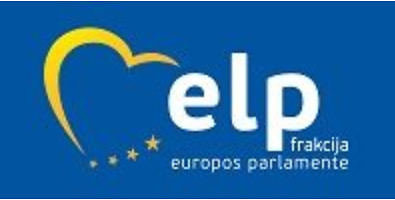Deliberations on this question in the committee are a continuation of discussions on Arvydas Sekmokas’ petition to the European Parliament regarding Astravyets NPP. The meeting featured deputy director-general of the European Commission’s Energy Department Massimo Garibba.
M. Garibba introduced to the committee’s members the question of European stress testing for Astravyets NPP and the question of synchronisation. According to the EC’s representative, this spring, a peer review mission will be sent by the Commission to Astravyets and it is expected that by March, when Belarus begins commercial operation of the nuclear plant, to complete its report on the implementation of stress tests and security. He assured that the Commission is putting forth all its efforts so that Astravyets NPP would adhere to the highest security standards. He also noted that from November 3, electrical power from Belarus and Astravyets NPP no longer enters the Baltic States. According to him, only electricity generated in Russia reaches Latvia from Belarus and only with clear certificates of origin.
MEP A. Kubilius, who participated in the meeting, stated that “Lithuania is not a large country. In case of a disaster, we will have nowhere to run or hide. Astravyets NPP was built by the Lukashenko regime alongside Rosatom just 40 kilometres away from Vilnius, the Lithuanian capital.”
The plant is just 30 kilometres away from the MEP’s home in Vilnius’ suburbs.
A. Kubilius emphasised that in principle, he is not inclined against nuclear energy.
“But we know well how A. Lukashenko has been acting since last year. Soe might say that there are nuclear power plants near Brussels or Antwerp. But I would like to ask you – would you want for A. Lukashenko and Rosatom to build a power plant near your home or near the European Parliament’s buildings?” he asked.
The MEP also pointed out that this Astravyets NPP project is a geopolitical project of the Kremlin’s and the 10 billion US dollars in loans the Kremlin has issued for the construction of the power plant is aimed at keeping Lithuania and the other Baltic States dependent on the electricity generated in Astravyets.
“Thus, we fight against this power plant and democratic Belarus led by Sviatlana Tsikhanouskaya is also against this project. As such, we have chosen to ban the import of electricity generated in this power plant,” A. Kubilius said.
He invited his fellow MEPs to express solidarity and “do everything possible to be rid of this threat to not only Lithuania but the entirety of the EU and democratic Belarus.”
The MEP also reminded that the location for Astravyets NPP was chosen in breach of the Espoo Convention and several serious incidents occurred during the power plant’s construction.
“Furthermore, stress testing of the power plant performed as per EU methodology showed that there are clear flaws related to the safety of the power plant’s technologies and the recommendations that were offered were not implemented,” the MEP said.
The absolute majority of members speaking at the ITRE Committee expressed concern over the safety of the nuclear power plant and the stress testing.
Latvian MEP Ivars Ījabs stated that we mustn’t forget the political risk in Belarus, which is evident under current circumstances. According to him, after the August events, everyone in the Baltic States realised that Belarus is a police state, which persecutes its people. He expressed concern that the current regime is inclined to conceal information and also that it will handle a nuclear power plant built by the Kremlin, which will be wholly dependent on Rosatom. “This poses a threat to our energy security, our environment and the health of our people,” he said.
Polish MEP Jerzy Buzek agreed that this project is geopolitical and that we cannot resolve this problem at a technical level and so, we need serious political involvement at the EU level and the solidarity of the EU’s member states.
“We cannot allow entry into our market for any electrical power generated without adherence to safety standards,” the MEP said.
The Thursday discussion at the ITRE Committee was held following a ruling of the European Parliament’s Petition Committee, which was a result of the Petition Committee hearing in October 2020 a petition initiated by the Movement Against Astravyets NPP, which was presented to the committee’s session by former Minister of Energy Arvydas Sekmokas. The petition requests for the European Parliament to pass a resolution, which bars the import of electricity generated in Astravyets into the EU market. If the unsafe Astravyets NPP were to become fully operational, the European Parliament, European Commission and European Council were urged to impose sanctions on the nuclear plant’s builders and individuals related to the plant’s construction and operation.
It is planned that following today’s ITRE Committee deliberations, the European Parliament’s February plenary session will discuss and pass a special European Parliament resolution aimed at problems pertaining to Astravyets NPP.













